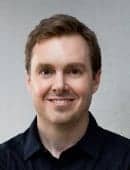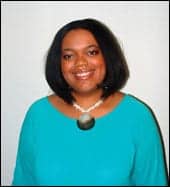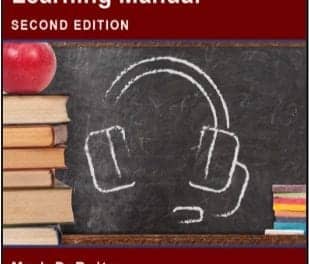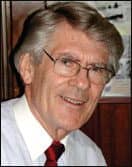Taking on the role of an expert witness at a trial offers yet another facet for sharing your audiological knowledge with the general public. This article provides a look at what to expect when becoming an expert witness, including the case review, the retainer agreement, the pre-trial process and fact finding, the final report, and testifying in front of a jury.
For decades, physicians have served as expert witnesses in cases involving personal injury and malpractice. In fact, the proliferation of malpractice suits has generated a cottage industry, with firms now locating specialists for all types of liability cases.
The use of audiologists and hearing instrument specialists as expert witnesses is less common. One reason is the relatively small number of cases involving hearing loss. Malpractice claims, for example, related to taking an earmold impression for a hearing aid are uncommon, as evidenced by the low malpractice insurance rates charged to most audiologists and hearing instrument specialists. Until recently, audiologists did not gain the title of “doctor of audiology” and often were not considered “experts” within the legal community. However, the recent increase in the number of AuDs may be changing the way in which the public views the audiologist as an expert on matters pertaining to the diagnosis and treatment of hearing disorders.
This article is based on the first author’s experience as an expert witness. Few malpractice and personal injury cases—which are civil suits—are actually tried before a judge and jury; most are settled out of court with the defendant (usually an insurance company) paying an agreed-upon amount to the plaintiff. However, any time a consultant agrees to provide an expert opinion in a legal matter, he/she must be prepared to testify about the findings in open court.
There are essentially 5 steps that are required for consideration when agreeing to serve as an expert audiological witness: 1) the case review (ie, do I want to do this?); 2) the retainer agreement; 3) the pre-trial process and fact finding; 4) the final report, and 5) testifying (if the case goes that far).
Case Review
The first step in preparing for a case is for the attorney to schedule an interview with the consulting hearing care professional. An initial consultation fee should be agreed upon before the meeting. At this meeting, the attorney will reveal if he/she is representing the plaintiff or defendant. The attorney will inform the hearing care professional of the salient facts of the case, including alleged malpractice/injury, the conditions that led to the complaint, and what attempts have been made, if any, to mediate the dispute. If there are mitigating factors—for example the defendant’s history of licensing board complaints—this should also be disclosed at this meeting. The actual identity of the parties involved may or may not be disclosed.
The consulting hearing care professional should have a clear understanding of the events that prompted the lawsuit. After discussing the facts in the case, he/she should request a few days to consider the matter before actually deciding to accept the case. Although the consulting professional does not have to give the attorney the reason for accepting or declining a case, they should indicate whether or not they believe their expert audiological testimony would be favorable to the attorney’s case.
Retainer Agreement
Once the audiologist decides to accept the case, a retainer agreement should be prepared that includes the hourly fee for case review, conferences, and testimony. Fees should reflect the anticipated loss of revenue while attending depositions, pre-trial conferences, and testimony, as well as the hearing care professional’s previous experience as an expert witness. The retainer agreement should include a schedule for court appearances with a minimum number of hours (in 4-hour increments), and reflect the amount of travel time to and from the court. The agreement should also include expenses for travel and lodging if the trial is at a distant location. Since most trials are short (ie, 1 to 3 days), expect the amount of time devoted to testify to be no more than 4 hours, with as much as an additional 4 hours of waiting time.
The retainer agreement should require a minimum of 4 hours payment in advance with a non-refundable cancellation fee if the trial is postponed or settled. This will allow the hearing care professional to recoup revenue lost by canceling his/her appointment schedule for that time period.
Fact Finding
Once both parties have signed a retainer agreement, the expert audiology consultant is sworn to secrecy. The attorney controls what information can be released and with whom the expert may discuss the case. In some instances, two experts (eg, an audiologist and a physician) may be asked to have a joint discussion, or each party may be required to review the case independently. In any event, the hearing care professional cannot discuss any matters pertaining to the case without the attorney’s permission.
The role of the expert witness is to review all testimony, medical records, operating reports, depositions, audiological findings, and other exhibits as meticulously as possible. The hearing care professional should make detailed notes that will be used in developing the final written report. If facts are needed, the expert witness should request that the attorney provides that information.
In some cases, the audiological expert may wish to examine the patient. If this is approved, the consulting audiologist must provide a detailed record of the evaluation. For example, if pure-tone and speech testing is performed, the record should reflect the exact type of earphones used (eg, TDH-39, insert earphones, etc), the word lists used, and the specific testing conditions under which the results were obtained. Likewise, any special test protocols (eg, to assess for pseudohypacusis) or any other testing methods (eg, speech-in-noise tests) should be carefully documented. Calibration records should also be included within the report.
Final Report
The final report should state the nature of the complaint, and the hearing care professional’s opinion regarding the facts that were presented. The basis for the opinion must be backed by evidence obtained from written records, testimony, personal observations, and any audiological tests that were performed. The argument must be squarely based on factual information and must draw a logical conclusion about what probably occurred. Any court testimony will be based on information contained in the written final report.
General Rules for Testifying
The attorney will review the report and meet with the expert witness prior to the trial. Attorneys cannot tell an expert witness what to say, but they can guide preparation by asking questions and developing scenarios. The attorney will question the expert in all phases of the case during the pre-trial interview. This is the time for the expert consultant to express any concerns about the facts presented or the conclusions drawn by other experts. The attorney will research areas of concern and bring in other experts if needed.
The trial is then scheduled, and the attorney will advise the expert witness when the trial is to begin. In jury trials, part of the first day is devoted to selecting a jury. Juries in civil cases are usually 6 men and women with an alternate juror. Experts are scheduled to testify with 1-2 day notice. The expert witness should be ready to testify at the scheduled time, but cases do not usually proceed on schedule, so an expert witness may wait several hours before taking the witness stand. It is important for an expert witness to ask if it is acceptable to sit in on previous testimony.
Before taking the witness stand, the attorney may ask for a final pre-trial meeting to apprise the expert of any changes or progress in the case. Some of the issues contained in the expert hearing care professional’s report may have been resolved, and other matters may be pending. The audiological expert must be prepared to be flexible. The case is not about how well the audiologist or hearing instrument specialist can develop or defend an issue if that issue is already moot. In some situations, the attorney will need to have the expert move onto areas that may not have been considered before.
For example, in one case where silicone impression material lodged behind an exostosis, the issue of diminished hearing as a result of the impacted material was resolved before the audiological expert testified. The only issue left to resolve was whether the defendant (a dispensing professional) could have known if the cotton block shifted when the impression material was injected into the ear canal. The concept of whether it was possible or probable that the patient swallowed while the material was introduced into the ear canal—thus shifting the block and allowing material to leak behind the exostosis—was the only remaining issue. The plaintiff argued that the patient could not have moved or swallowed, but the expert audiologist representing the defense countered that it was, indeed, very likely that the patient did swallow while the impression was taken. Because the defendant could not reasonably be expected to know the impression material lodged behind the exostosis, it was ruled that he was not liable for any damages in this case.
It is important for the audiological expert to understand that he/she may have to abandon an argument at the last minute if that argument is no longer important to the case. The expert’s objective is to present testimony relative to the issue at hand.
Courtroom Behavior
It is natural for a witness to be nervous in court—even for the most experienced expert witnesses and litigators. The attorney with whom he/she is familiar will question the hearing care professional first. Many of the questions will be designed to establish the credibility of the expert witness. Therefore, the expert witness should answer questions about training and experience with honesty and without embellishment. It is important for the jury to accept the hearing care professional as an expert and not as a person who is egocentric or self-aggrandizing.
The audiological expert should look at the members of the jury as much as possible. Eye contact with jurors establishes the witness as being credible and trustworthy. If a question requires a “yes” or “no” answer, respond appropriately but do not elaborate. An expert witness should be prepared to stop speaking if either attorney raises an objection. The witness should not resume testimony until the judge has ruled on the motion.
Experienced expert witnesses do not take anything said in court personally. It is the duty of the opposing attorney to discredit testimony that is unfavorable to the case, and in some cases that may include what appears to be “picking on” the expert witness. If the opposing side has obtained its own expert witness, it is likely that the two experts will differ substantially in the interpretation of the same material. It is vital that an expert hearing care professional remains truthful while stating, in a focused manner, the facts about the case.
It is often difficult to remain calm when the opposing side bombards a witness with questions designed to discredit their knowledge. In one instance, the opposing attorney asked if something was possible. The response, “Yes, it is possible but not probable,” allowed the witness to clarify the meaning of a question without sacrificing his/her integrity. The expert witness should not allow badgering by the opposition. If there is doubt about the meaning of a question, the expert witness should ask for the question to be repeated or rephrased.
Finally, it is important to remember that the expert witness is a tool of the court to arrive at a decision. When the audiologist or hearing instrument specialist is finished testifying, he/she should leave the courtroom. In most cases, the attorney will notify all parties about the outcome of the trial. Whether the case was won or lost, it is important to bear in mind that expert testimony plays a vital role in our system of jurisprudence. The knowledge and integrity of the audiological expert is key.
The role of being an expert witness can be personally and professionally rewarding. In our view, as audiologists continue to grow professionally—and the public’s knowledge about hearing awareness and its importance in quality of life increases—more of us will be called upon to take part in representing the rights of patients and practitioners.


|
Correspondence can be addressed to Granville Brady, Jr, AuD, 1135 Clifton Ave, Clifton, NJ 07013; email: [email protected].
Resources
1. Lubet S. Modern Trial Advocacy: Analysis and Practices (2nd edition). Notre Dame, Ind: National Institute for Trial Advocacy; 1993.
2. Maret TA. Fundamentals of Trial Techniques. New York City: Aspen Publishers; 2001.
3. Wright E. Winning Courtroom Strategies. Englewood Cliffs, NJ: Prentice Hall; 1994.





